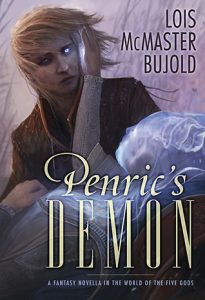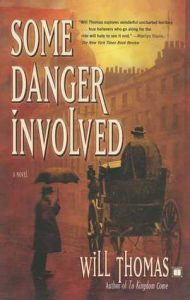 The Dallergut Dream Department Store by Lee Mi-ye, Sandy Joosun Lee
The Dallergut Dream Department Store by Lee Mi-ye, Sandy Joosun Lee Narrator: Shannon Tyo
Format: audiobook, ebook
Source: supplied by publisher via Edelweiss, supplied by publisher via Libro.fm
Formats available: hardcover, ebook, audiobook
Genres: cozy fantasy, magical realism
Pages: 288
Length: 6 hours and 27 minutes
Published by Hanover Square Press, Harlequin Audio on July 9, 2024
Purchasing Info: Author's Website, Publisher's Website, Amazon, Barnes & Noble, Kobo, Bookshop.org, Better World Books
Goodreads
Before the Coffee Gets Cold meets Mr. Penumbra’s 24-Hour Bookstore in this whimsical, poignant novel about the inner workings of a department store that sells dreams
THE #1 KOREAN BESTSELLER WITH OVER A MILLION COPIES SOLD
In a mysterious town that lies hidden in our collective subconscious, there's a quaint little store where all kinds of dreams are sold ...
Day and night, visitors both human and animal from all over the world shuffle in sleepily in their pyjamas, lining up to purchase their latest adventure. Each floor in the department store sells a special kind of dream, including nostalgic dreams about your childhood, trips you've taken, and delicious food you've eaten, as well as nightmares and more mysterious dreams.
In Dallergut Dream Department Store we meet Penny an enthusiastic new hire; Dallergut, the flamboyant owner of the department store; Agnap Coco, producer of special dreams; Vigo Myers, an employee in the mystery department as well as a cast of curious, funny and strange clientele who regularly visit the store. When one of the most coveted and expensive dreams gets stolen during Penny's first week, we follow along with her as she tries to uncover the workings of this wonderfully whimsical world.
A captivating story that will leave a lingering magical feeling in readers' minds, this is the first book in a bestselling duology for anyone exhausted from the reality of their daily life.
My Review:
In The Voyage of the Dawn Treader, part of the Chronicles of Narnia, one of the places that the Dawn Treader voyages to is the “Island Where Dreams Come True”. What made that part of their journey stick in my head hinges on the definition of “dream”. Because it doesn’t refer to daydreams, the things we think we might like to do or be or have, but rather to the things that our subconscious throws up at us at night.
Some of those dreams may be good, but a lot of them are not – and all of them have the potential to get very, very weird.
If there were a place like the Dallergut Dream Department Store, things would be so much different!
We see Dallergut’s through the eyes of Penny as she interviews with Mr. Dallergut for a job at his store. Through her eyes, we see how the store and the little corner of the world in which it lives and works, well, works.
It’s never called “Dreamland”, but that is what it is. The living, breathing, wide-awake residents seem to be relatively few – and not necessarily human. Whatever they are, their jobs are to either serve the people who work in the dream industry – or to serve the dreamers who pass through each night to buy their nightly dreams at Dallergut’s.
Penny doesn’t so much work her way UP the store’s hierarchy – because it’s a pretty flat organization – as she works her way IN to how the system works.
Dreamers don’t remember they were ever there. They don’t really remember their dreams – as one generally does not. But they do wake up feeling refreshed and with a lingering sense of whatever it was they were looking for within those dreams.
And it’s the lingering sense, that rising emotion, that powers the entire dream economy.
So, as Penny learns how the whole thing functions, we have the opportunity to see what a charming place it is, filled with (mostly) charming people and a whole lot of creativity – along with a strong sense of found family – that makes it a delightful read for a day when all you really want is to escape and (day)dream of a magical place that brings dreams to life!
Escape Rating A-: I’m going to use the word “charming” a lot here, because this story is absolutely that. What makes it work, and what pulls the reader across that hump of “but this isn’t the real world” is that we see the whole thing through Penny, and she’s a newbie at everything.
Not that she doesn’t seem to have grown up as a citizen of the little corner of magical realism – although that’s never really clear – but rather than she’s young and this appears to be her first real job post-graduation and she’s learning about how THE world works and how HER world works and we’re able to piggyback on her learning process.
And she’s just a really nice person to tag along with!
But in spite of the magical realism aspects of the story – what makes it interesting are the personalities of the people that Penny meets and works with, the structure of the dream economy and how it does and doesn’t mirror reality, and the way that the story gently explores the function of sleep and dreams for everyone.
So it’s a found family story and a coming of age story and a bit of a training montage and a lovely, thoughtful metaphor all rolled into a delightful ball of a sweet story that even manages to have a bit of the effect of the “Calm cookies” that Mr. Dallergut likes so much.
 In short, The Dallergut Dream Department Store is utterly charming, and I was absolutely charmed – even in the places where I had to tell the logical side of my brain to go to sleep and just dream the whole thing.
In short, The Dallergut Dream Department Store is utterly charming, and I was absolutely charmed – even in the places where I had to tell the logical side of my brain to go to sleep and just dream the whole thing.
This was, also and absolutely, the perfect book for the mood I was in and the frantic stuff going on in real life, so it was a terrific read for this week. It also fits into the same branch of magical realism, found family and cozy fantasy (or at least fantasy-ish) of Before the Coffee Gets Cold, The Kamagawa Food Detectives and Days at the Morisaki Bookshop – and I’m going to dive into the next book in all of those series pretty much immediately because I need more of this.
But I also need to confess that my impatience got the better of me a bit – so even though I was enjoying the audiobook I still had that urge to see the whole of Penny’s first year at Dallegut’s and switched to the ebook about halfway through.
It’s charming either way, lovely and oh-so-cozy a fantasy. Just perfect for days that you wish you could dream away.

 Penric and the Bandit (Penric and Desdemona #13) by
Penric and the Bandit (Penric and Desdemona #13) by  Learned Divine Penric kin Jurald of Vilnoc is ALWAYS the single most dangerous person in the room in any situation because of his magic, his demon Desdemona, and the favor of his god, the Lord Bastard – and has been since the very first novella in this series,
Learned Divine Penric kin Jurald of Vilnoc is ALWAYS the single most dangerous person in the room in any situation because of his magic, his demon Desdemona, and the favor of his god, the Lord Bastard – and has been since the very first novella in this series,  Escape Rating A: After the previous entry in this series, the rather cozy and close to home
Escape Rating A: After the previous entry in this series, the rather cozy and close to home  Guard the East Flank: a military romantic suspense (Night Stalkers Reload Book 1) by
Guard the East Flank: a military romantic suspense (Night Stalkers Reload Book 1) by  Lieutenant Colonel Emily Beale was a legend among the Night Stalkers. And so she should be, considering her many, many firsts and achievements and successful missions. (If you want details – and you should if you love military romance! – check out the original
Lieutenant Colonel Emily Beale was a legend among the Night Stalkers. And so she should be, considering her many, many firsts and achievements and successful missions. (If you want details – and you should if you love military romance! – check out the original  I’ve been a fan of this author since I read the very first
I’ve been a fan of this author since I read the very first  “Better Living Through Algorithms” by Naomi Kritzer in Clarkesworld Magazine Issue 200, May 2023) by
“Better Living Through Algorithms” by Naomi Kritzer in Clarkesworld Magazine Issue 200, May 2023) by  Ivy, Angelica, Bay by
Ivy, Angelica, Bay by 
 The Most Human: Reconciling with My Father, Leonard Nimoy by
The Most Human: Reconciling with My Father, Leonard Nimoy by  “The Year Without Sunshine” by Naomi Kritzer in Uncanny Magazine Issue 55, November-December 2023 by
“The Year Without Sunshine” by Naomi Kritzer in Uncanny Magazine Issue 55, November-December 2023 by  "The Mausoleum's Children" by Aliette de Bodard in Uncanny Magazine Issue 52, May-June 2023 by
"The Mausoleum's Children" by Aliette de Bodard in Uncanny Magazine Issue 52, May-June 2023 by  I put this particular story towards the front of the list because of the author. I’ve very much enjoyed her
I put this particular story towards the front of the list because of the author. I’ve very much enjoyed her  The obvious bit is wrapped around Thuận Lộc’s need to belong, her guilt about not bringing her peeps out with her, and her attempt to assuage just a piece of that trauma. But there’s also more than a bit about abuse and its victims, Stockholm Syndrome writ very, very large, and the rapaciousness of greed for power in all forms and the way that some people try to escape evil by getting on top of it or allowing themselves to be co-opted by it.
The obvious bit is wrapped around Thuận Lộc’s need to belong, her guilt about not bringing her peeps out with her, and her attempt to assuage just a piece of that trauma. But there’s also more than a bit about abuse and its victims, Stockholm Syndrome writ very, very large, and the rapaciousness of greed for power in all forms and the way that some people try to escape evil by getting on top of it or allowing themselves to be co-opted by it. On the Fox Roads by
On the Fox Roads by 
 Fatal Enquiry (Barker & Llewelyn, #6) by
Fatal Enquiry (Barker & Llewelyn, #6) by  Most of the entries in the
Most of the entries in the  What makes the story rise to an A+, at least for this reader, was the delicious irony of the ending. Nightwine returns to London with deep, well-laid plans to eliminate Barker. Barker, forced to react rather than plan, still manages to maneuver Nightwine to what he believes will be his enemy’s downfall. It’s only after the results of that inevitable confrontation have been dealt with that Barker learns that both he and Nightwine have both been played by someone neither realized was even studying their board – let alone running it.
What makes the story rise to an A+, at least for this reader, was the delicious irony of the ending. Nightwine returns to London with deep, well-laid plans to eliminate Barker. Barker, forced to react rather than plan, still manages to maneuver Nightwine to what he believes will be his enemy’s downfall. It’s only after the results of that inevitable confrontation have been dealt with that Barker learns that both he and Nightwine have both been played by someone neither realized was even studying their board – let alone running it.